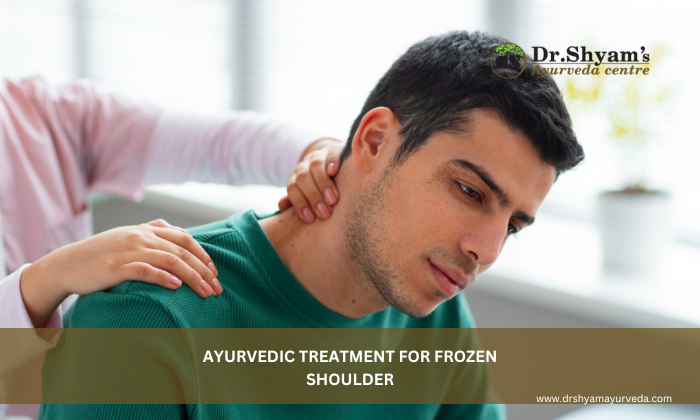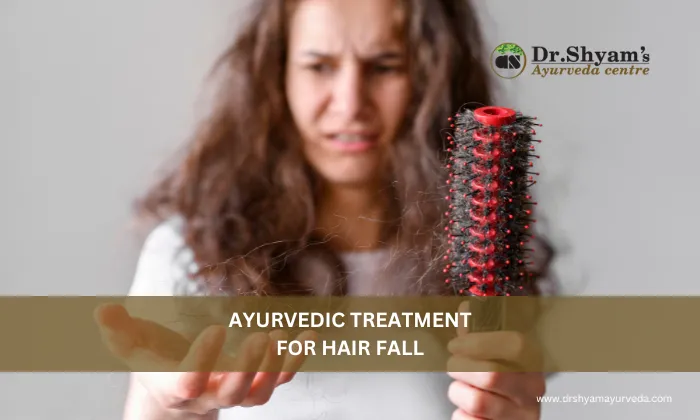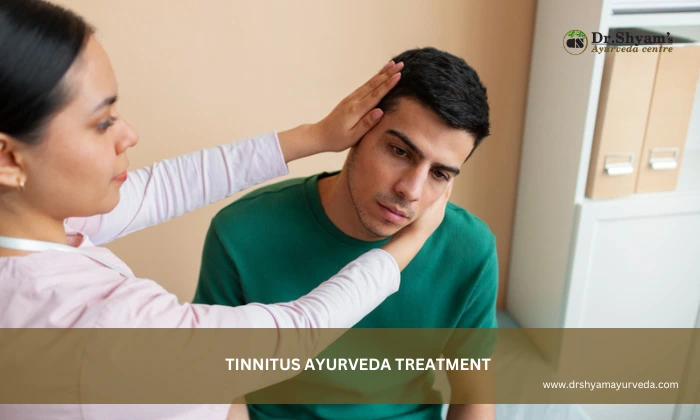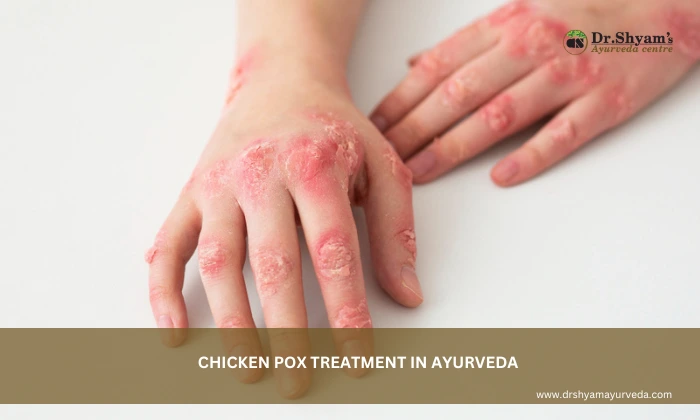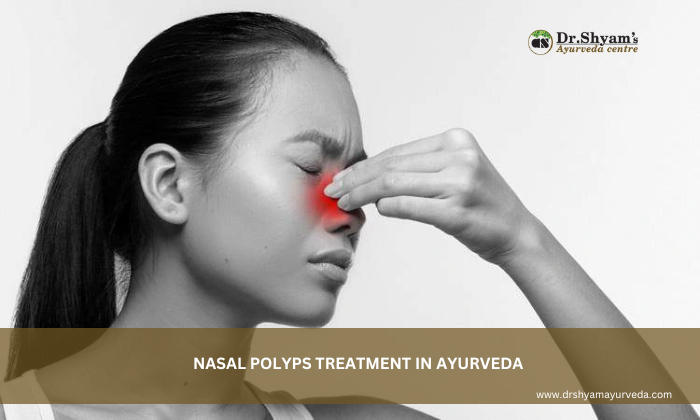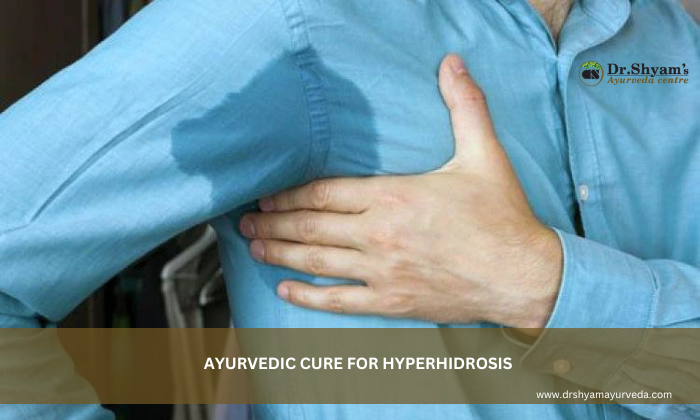Frozen shoulder is more than just shoulder pain—it’s a condition that gradually locks your joint, making everyday movements difficult. Ayurvedic treatment for frozen shoulder helps restore mobility, reduces stiffness, nourishes tissues, and balances aggravated Vata dosha. With herbal formulations, medicinal oils, and Panchakarma therapies, Ayurveda offers long-lasting relief without dependency on painkillers or invasive procedures.
What is a Frozen Shoulder?
Frozen shoulder, medically known as adhesive capsulitis, is a condition marked by stiffness, pain, and progressive loss of shoulder movement. It occurs when the joint capsule (the strong connective tissue that surrounds and stabilizes the shoulder joint) becomes thickened, inflamed, and tight. As pain increases, the shoulder is used less, which further reduces mobility, leading to the characteristic “frozen” state.
Frozen shoulder develops gradually, and it may take months to years for recovery. It often affects people between 40 and 60 years of age, with women being more commonly affected than men. Individuals with diabetes, thyroid disorders, or prolonged immobility after surgery or injury are at greater risk. If left untreated, frozen shoulder can significantly interfere with daily activities, from dressing to reaching overhead.
Common Causes and Symptoms of Frozen Shoulder
Causes of Frozen Shoulder
The exact cause of frozen shoulder is not fully understood, but researchers agree that it occurs when the shoulder joint capsule becomes inflamed, thickened, and tight, leading to scar tissue (adhesions) and reduced joint lubrication. This makes shoulder movement painful and restricted over time.
Frozen shoulder is categorized into primary and secondary types based on etiology.
Primary Adhesive Capsulitis (Idiopathic)
This form develops without an obvious external trigger. It is thought to result from underlying inflammation and fibrotic changes in the joint capsule. Primary frozen shoulder is frequently associated with systemic conditions such as:
- Diabetes mellitus
- Thyroid disorders
- Other systemic conditions such as Parkinson’s disease and heart disease
Secondary Adhesive Capsulitis
This form develops due to an external factor that limits shoulder mobility, leading to stiffness and capsule thickening. Common causes include:
- Trauma: An injury to the shoulder that leads to immobilization and precipitates adhesive capsulitis.
- Surgery: Postoperative complications, including shoulder or chest wall surgeries, can result in the development of adhesive capsulitis.
- Prolonged immobilization: Prolonged immobilization after surgery or injury can lead to stiffening of the joint capsule.
Risk Factors for Frozen Shoulder
- Age: Most common in adults between 40 and 60 years.
- Gender: Women are affected more often than men.
- Shoulder injury or surgery: Conditions like rotator cuff tears, fractures of the collarbone, upper arm, or shoulder blade, or post-surgical immobilization can trigger frozen shoulder.
- Diabetes: Around 10 to 20% of people with diabetes experience frozen shoulder, often with more severe and longer-lasting stiffness.
- Other medical conditions: Increased risk in people with stroke, hypothyroidism, hyperthyroidism, Parkinson’s disease, and heart disease. Limited mobility after a stroke is a major contributing factor.
Symptoms of Frozen Shoulder
Frozen shoulder symptoms develop gradually and typically progress through three distinct stages:
Stage 1: Freezing stage
- The shoulder becomes stiff and is painful to move.
- The pain slowly increases and may worsen at night.
- Gradual loss of range of motion.
- The stage lasts from 6 weeks to 9 months.
Stage 2: Frozen stage
- Pain may reduce, but stiffness becomes severe.
- Daily activities such as lifting, dressing, or reaching overhead become difficult.
- The stage lasts from 4 to 12 months.
Stage 3: Thawing stage
- The shoulder’s ability to move begins to improve.
- Strength and flexibility gradually return, though full recovery may take longer.
- The stage lasts from 6 months to 2 years.
Nature of Pain
- Usually dull or aching in character.
- Often worse at night, sometimes disturbing sleep.
- Commonly felt over the outer shoulder and may radiate to the upper arm.
You may also like: Ayurveda for knee pain
Ayurvedic Treatment for Frozen Shoulder
In Ayurveda, frozen shoulder can be correlated with Avabahuka, one of the Vataja Nanatmaja Vyadhis (diseases caused by Vata imbalance). The condition arises primarily due to the vitiation of Vyana Vata, which localizes in the Amsa Sandhi (shoulder joint).
This aggravated Vata leads to the drying (kshaya) of Shleshaka Kapha, along with the involvement of Mamsa (muscles), Sira (vessels), and Snayu (ligaments). As a result, the following symptoms manifest:
- Bahu praspandita haratwa: restriction of shoulder movements
- Shoola: pain in the joint
- Sthambha: stiffness and immobility
These classical features described in Ayurveda closely resemble the presentation of frozen shoulder in modern medicine, highlighting the relevance of Ayurvedic principles in understanding and treating the condition.
Ayurvedic treatment for frozen shoulder focuses on reducing Vata aggravation, nourishing affected tissues, relieving pain, and restoring shoulder mobility. By combining Panchakarma therapies, herbal formulations, diet, and lifestyle modifications, Ayurveda offers long-lasting relief from frozen shoulder.
Herbal Medicines
Ayurveda recommends Vata-pacifying and nourishing formulations to reduce pain, stiffness, and inflammation in frozen shoulder, including:
- Yogaraja Guggulu & Simhanada Guggulu
- Rasnerandadi Kashayam
- Prasaranyadi Kashayam
- Sahacharadi Kashayam
- Maharasnadi Kashayam
- Dasamoolarista
- Gandha Taila (internally with milk or decoction)
Therapies
Ayurveda incorporates a combination of internal and external therapies to restore shoulder movement and reduce stiffness:
- Abhyanga (Oil Massage): Improves circulation, softens tissues, and reduces stiffness.
- Swedana (Sudation/Steam Therapy): Includes specialized forms such as Jambeera Pinda Sweda, Shashtika Shali Pinda Sweda, and Dashamoola Nadi Sweda to relieve stiffness, improve blood flow, and reduce pain.
- Nasya Karma (Nasal Therapy): Administration of medicated oils through the nostrils, especially beneficial in Urdhwajatrugata Vata disorders (above the clavicle).
- Basti (Medicated Enema): A key therapy in Vata disorders, helping to balance systemic Vata and improve joint function.
- Marmabhighata Chikitsa: Focused therapy when Amsa Marma (shoulder joint) is affected. It involves herbal paste application (Lepa), internal medicines, and strengthening therapies.
- Agnikarma (thermal cauterization) & Siravyadha (therapeutic bloodletting): in resistant cases, as mentioned in classical texts.
Ayurvedic Oils for Frozen Shoulder
Medicated oils play a central role in reducing Vata aggravation and improving shoulder flexibility:
- Mahanarayana Thailam: Relieves pain, reduces stiffness, and strengthens joints.
- Mahamasha Taila: Effective for muscular weakness and restricted movements.
- Karpasasthyadi Taila: Improves joint mobility and nourishes ligaments.
- Prasarinyadi Taila: Specifically indicated for Avabahuka.
- Dhanwantharam Thailam: Strengthens nerves and muscles, reduces stiffness.
Diet and Lifestyle Recommendations
Ayurveda emphasizes the importance of a Vata-pacifying diet and routine in managing frozen shoulder. Proper food choices and lifestyle practices can speed up recovery, reduce stiffness, and prevent recurrence.
Diet Guidelines
- Prefer warm, freshly cooked, and easily digestible meals instead of cold or processed food.
- Include nourishing staples such as wheat, urad dal, Njavara rice, horsegram, and milk.
- Use ghee regularly for its lubricating and strengthening effect.
- Drink warm water throughout the day to aid digestion and circulation.
Lifestyle Practices
- Perform gentle stretching or yoga asanas under guidance to improve flexibility.
- Maintain proper posture while sitting, standing, and sleeping.
- Take frequent breaks from prolonged sitting or gadget use to avoid stiffness.
- Practice relaxation techniques to reduce stress, which can aggravate Vata.
What to Avoid
- Minimize cold, dry, and processed foods and frozen foods, as well as excess sugar and alcohol.
- Refrain from improper exercise or unsupervised yoga, which may worsen stiffness.
- Prevent long periods of immobility and keep the shoulder gently active as advised.
Disclaimer: Always seek guidance from a qualified Ayurvedic doctor before starting any treatment or formulations.
Benefits of Ayurvedic Treatment Over Conventional Medicine
Conventional treatments for frozen shoulder, such as painkillers or steroid injections, often provide only temporary relief. Ayurveda, on the other hand, focuses on healing the root imbalance while restoring mobility and strength. The benefits of Ayurvedic treatment include:
- Addresses the root cause: By pacifying aggravated Vata and improving joint lubrication, Ayurveda prevents recurrence rather than masking symptoms.
- Natural and safe: Herbal medicines, medicated oils, and detox therapies provide relief without the side effects of steroids or long-term drug use.
- Holistic care: Ayurvedic treatment combines internal medicines, external therapies, Panchakarma, diet, and lifestyle guidance for complete healing.
- Personalized approach: Treatment is customized according to an individual’s body type (Prakriti), dosha imbalance, and stage of disease.
- Rejuvenation benefits: Beyond pain relief, Ayurveda nourishes muscles, ligaments, and nerves, ensuring long-term flexibility and strength.
At Dr. Shyam’s Ayurveda in Dubai, patients receive evidence-based Ayurvedic care tailored to their needs, helping them recover shoulder mobility safely and naturally.
When to Consult an Ayurvedic Doctor
Frozen shoulder can sometimes improve gradually, but professional Ayurvedic care ensures faster recovery and prevents long-term complications. You should consult an Ayurvedic doctor if:
- Shoulder pain and stiffness persist for more than a few weeks.
- Daily activities like dressing, lifting, or reaching overhead become difficult.
- Pain is worse at night and disturbs your sleep.
- You have underlying conditions such as diabetes or thyroid disorders, which increase the risk and severity of frozen shoulder.
At Dr. Shyam’s Ayurveda Clinic in Dubai, experienced Ayurvedic physicians assess your body type, dosha imbalance, and disease stage to design a personalized treatment plan with herbal medicines, therapies, and lifestyle guidance for safe, long-term relief.
Frozen shoulder can severely limit mobility and affect quality of life, but Ayurveda offers a safe and holistic path to recovery. By combining herbal medicines, therapeutic oils, Panchakarma, and lifestyle modifications, Ayurvedic treatment not only relieves pain and stiffness but also strengthens the shoulder joint for long-term health.
If you are struggling with frozen shoulder, don’t wait for it to worsen. Book a consultation at Dr. Shyam’s Ayurveda Clinic to receive personalized Ayurvedic treatment in Dubai and regain your shoulder flexibility.
1. How long does Ayurvedic treatment take to cure frozen shoulder?
Mild cases improve in 4 to 6 weeks, while chronic cases may take 2 to 3 months with Panchakarma.
2. Which is the best Ayurvedic oil for frozen shoulder?
The Ayurvedic oils for frozen shoulder include Mahanarayana Taila, Dhanwantharam Taila, Prasaranyadi Taila, Mahamasha Taila, and Karpasasthyadi Taila.
3. Can Ayurveda cure frozen shoulder permanently?
Yes, Ayurveda provides lasting relief by addressing Vata imbalance and preventing recurrence.
4. Is Panchakarma effective for frozen shoulder?
Yes, therapies like Basti, Abhyanga, and Swedana are highly effective in reducing stiffness and pain. If you are in Dubai, visit Dr. Shyam’s Ayurveda for Panchakarma treatment in Dubai for managing frozen shoulder.

